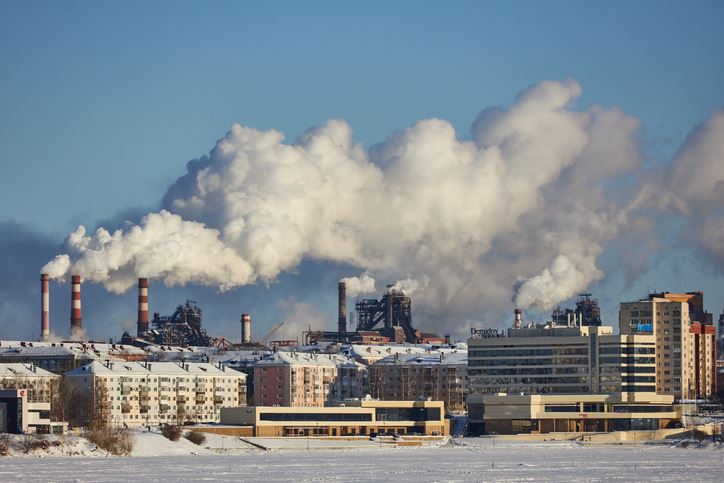The vice environment minister on Wednesday rejected the claims made by deniers of climate change, claiming that a number of “measured facts” demonstrate that the crisis is actual and taking place right now.
Yoo Je-chul acknowledged that there are people in other parts of the world who do not agree that a climate crisis is being caused by the rise in ocean temperatures and the frequency of extreme natural disasters.
“Certainly I have heard that argument, and so I heard as well that there is a prominent Korean scholar who also supports that argument,” Yoo said during a press conference with foreign correspondents in Korea.
Yoo disagreed with the denialists, referring to a list of data recorded over the past centuries.
“Before 1850 when the first Industrial Revolution ended and the second one began, the concentration level of carbon dioxide in greenhouse gases across the globe was around 285 parts per million (ppm),” said Yoo, former president of Korea Environmental Industry and Technology Institute. “That figure has now jumped to about 420 ppm. Methane, nitrogen dioxide and hydrogen fluoride, which float in the air after being generated from polluting activities, also increased throughout the period. These are the found facts that have been measured.”
It is also a scientifically proven fact that greenhouse gases stop heat from escaping the atmosphere and thus cause global warming, as is the fact that the present concentration level of carbon dioxide in greenhouse gases has jumped nearly 1.5 times from before the landmark periods of industrial growth, according to Yoo. He said those facts support the existence of greenhouse gases’ effects which increased the average temperature of the atmosphere.
Read Also: panel-highlights-qatars-pioneering-role-in-reducing-climate-change
“To deny that there is an apparent correlation between that history of humanity and the changes in those figures would be nonsensical,” Yoo said. “It is the fact that the average global temperature has risen by more than 1.3 degrees Celsius from before the industrial revolutions began. We see extreme climate conditions more frequently than before. It would be a more rational conjecture to believe in that correlation than not believing so.”
Yoo drew a clear line between himself and those who believe that global warming had already begun more than a century before humanity started using fossil fuels and that it is not carbon dioxide that has been mainly driving global warming. Park Seok-soon, a professor emeritus from the Department of Environmental Science and Engineering at Ewha Womans University in Seoul, has been publicly supporting conspiracy theories denying the reality of the climate crisis.
Patrick Moore from Canada, a former president of Greenpeace Canada, also criticized environmentalists’ moves to fight the climate crisis as “scare tactics and disinformation.” He said the movement “abandoned science and logic in favor of emotion and sensationalism.” Supporters of the movement condemned him and accused him of promoting himself as a speaker and pro-corporate spokesperson.
Yoo made the remarks at a press conference where he shared the ministry’s key policies for this year. They included introducing a detailed roadmap by March to achieve the country’s carbon neutrality goal, enhancing the quality of water management for households and industry, achieving a circular economy and mitigating environmental dangers against citizens through a more sustainable ecosystem.
The vice minister said the ministry is aware of the domestic and global concerns about Korea’s energy policies not following the global trend of more aggressive use of renewable energy resources to replace fossil fuels and nuclear power.
He said the ministry is working with the country’s Ministry of Trade, Industry and Energy and Ministry of Science and ICT to meet the country’s Nationally Determined Contributions (NDCs) affirmed by the United Nations Framework Convention on Climate Change: reducing total national greenhouse gas emissions by 40 percent from 2018 levels ― equivalent to 727.6 million tons of carbon dioxide ― by 2030.
Story adapted from The Korea Times
